HEIDELBERG, Germany — Her husband also beat her in Syria. Not as often. Not as badly. Which is to say that, back there, he’d never tried to strangle her. That only started here, in the country that promised safety and freedom. Maybe better, she thought, to have stayed back in Damascus, bombs be damned.
Sometimes people suggested it was the trauma of the journey from Syria to Europe that twisted him into knots of violence. No, she insisted. Adamantly. It wasn’t the terrifying journey in the rubber raft, or the uncertainty at borders in central Europe, or the walking or the packed trains, or the sleeping outdoors, or the hunger. Those awful days, ironically, were the safest, traveling with others.
It was that back in Syria, they didn’t spend this much time together. He’d had a job to go to, friends to see.
Here, in Germany, he has nothing to do, nowhere to be, no one who knows him. She thought the anonymity of this place emboldened him: Four thousand people, many from other countries, lived at Patrick Henry Village, a former U.S. military base in southwestern Germany that’s now a refugee camp. Among these strangers, her husband started drinking. He started smoking weed. And all day long, he was by her side, unless he wanted to be somewhere else, like a friend’s room, flirting with other women. Even when he was away from her, he was messaging her on WhatsApp, making sure he knew where she was.
When F decided she wanted to talk to me, in early October, she’d been in the camp for two months. (BuzzFeed News is using her first initial to protect her anonymity.) She told her husband she was joining a new friend for an English lesson. That friend was our translator; I was the “teacher.” I picked both women up from the camp entrance in my car.
"We need to get out of here. Quickly."
F jumped in the back. She looked tiny and timid — just around five feet tall, thin, in a white headscarf and black clothes. She had black eyeliner on, and she kept her eyes lowered. I tried to introduce myself but Naela Attar, the translator, said, “Not now. We need to get out of here. Quickly.” Then I noticed a short, close-shaven man with a thick, toned upper body circling the hood of our car.
“That’s the husband,” Attar said.
I drove F and Attar to a hotel lobby about 10 miles away, in central Heidelberg. There, F told me about the moments that made her realize she needed help, urgently.
He’d always said nasty things to her, even in public. “Bitch.” “Slut.” “Fuck you, and fuck your parents.” But in the camp, he started to hit her in front of people. One night, about two weeks before I met F, he ripped the handle out of the door and started beating her with it. Then he choked her.
If there had been a criminal investigation, what happened to F might’ve been called attempted homicide. If there had been gender experts brought in, they might’ve warned that men who choke women usually kill them later. And if there had been refugee advocates consulted, they might’ve pointed out that refugee women have been at risk in German refugee camps for years.
Germany is taking the lead on responding to the refugee crisis. Most recently, Chancellor Angela Merkel called an emergency summit of 14 European leaders. Among the agreements to come out of that meeting on Sunday was a plan to open holding camps for 100,000 refugees, half in Greece and half along the route more than half a million people have taken through central Europe to Germany.
But Germany’s own reception centers are hardly a model, at least when it comes to protecting women. Right now in Germany, there are essentially no guarantees of protection for women in refugee camps. There is, in effect, no law on women refugees’ safety, and there are no clear standards for how refugee camps should handle cases of abuse or assault, by partners or strangers. In practice, there’s not even agreement about who is ultimately responsible for women’s security: State and local governments point the finger at the private companies contracted to run the refugee centers, who point the finger back at the government.
Meanwhile, most women in these camps don’t speak English, let alone German, and they’ve come from countries that don't protect women who are abused by their husbands. One 25-year-old Syrian woman described what it’s like back home this way: "If your husband wants to kill you, he can kill you, and no one will say anything to him."
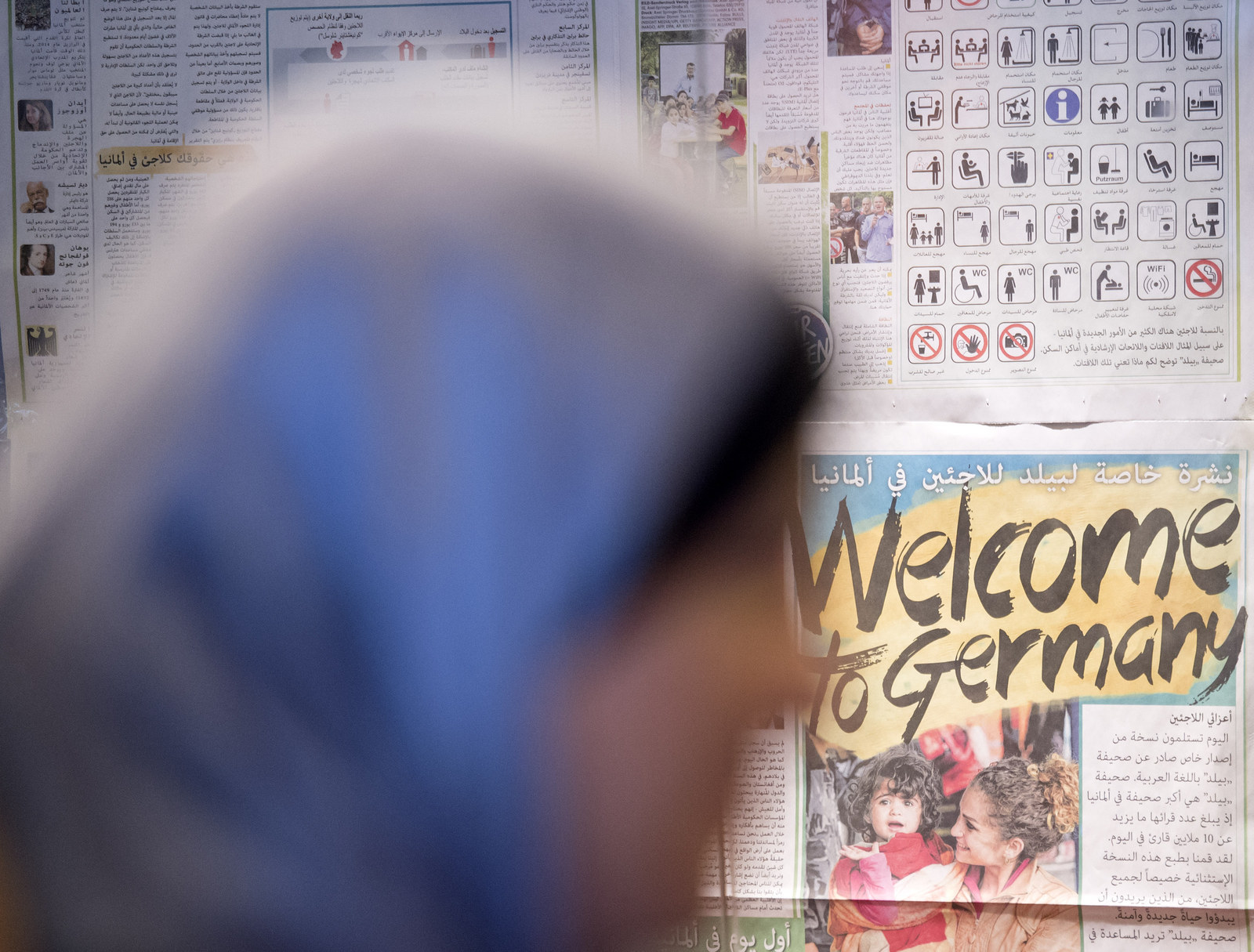
In late September, F’s husband came back to their room drunk. He raped her, she said, and he beat her. When she tried to call someone for help, he broke her phone.
F said the sounds of the assault drew officers from a security patrol. The police have an office in the Heidelberg camp, and in the evenings they go on patrol with the camp’s security personnel, who are overseen by the private company that runs the camp.
The patrol separated F and her husband. They tried to calm him down, and they asked her if she needed help. She doesn’t understand much English; they don’t speak Arabic. She understood that they wanted her to file a complaint, but she was afraid.
The day after F’s husband raped her and broke her phone, the family had its asylum interview. F was told she’d be transferred, with her husband and their two young children, out of the transit camp in Heidelberg . She was terrified: She didn't know where they'd end up after the transfer, but she felt certain that if they moved away from other people, he would kill her.
As the transfer loomed, she decided she had no choice but to file a complaint with the police. She took Attar along, to translate to the officers. But Attar said the officer on duty seemed not to understand, or acted as if he didn’t. He handed them off to an Arabic-speaking social worker. “This is just how Arab men are,” the female social worker told F, according to Attar. Then she advised Attar, “Don’t ever get married.”
F wanted to file a criminal complaint against her husband, to separate his asylum claim from the paperwork for her and their children so that they could get their residence independently, and to move to a women’s shelter with her kids. Lawyers, government spokespeople, and women's advocates in Germany told BuzzFeed News that all three of these things are possible. In fact, they are her legal rights.
But the social worker said that wasn’t feasible. “He has a right to see his children, so we can’t do anything like that until we hear his side of the story,” Attar remembers the social worker saying. Attar said the social worker also told F she didn't know how or whether they could separate the paperwork.
A women’s shelter, she said, was out of the question. In the meantime, the social worker offered F a separate room. She told F not to tell her husband where she was, and to have someone bring her food until they could figure out a better solution. Maybe they could transfer her somewhere else tomorrow, she offered.
But they had tried this with F before. She’d previously been given a separate room; he’d found her and harassed her so badly, she went back.
The separate room was also what camp staff had offered, just a few weeks before, to a young woman living downstairs from Attar. Her husband’s violence had gotten so bad, according to a relative, that the woman tried to kill herself. Camp staff gave her a separate room and told her not to leave it, but she refused the food friends brought. Weakened from days without eating or drinking, she was finally taken to the hospital. (Camp staff and government officials did not respond to repeated requests about cases of violence and their aftermath in the camp.)
F had no choice. In early October, she moved into a new room and waited for her secret transfer to finalize, hoping that being locked in might be as safe as being able to lock her husband out.
The next day, her husband sent her sweet messages, trying to coax her into telling him where she was. At the same time, he repeatedly called friends of F to see if they knew where she’d gone. I happened to be interviewing those friends, about unrelated matters, at the time of his calls.
“I’m going to kill her,” he said. “And that girl who’s helping her.”
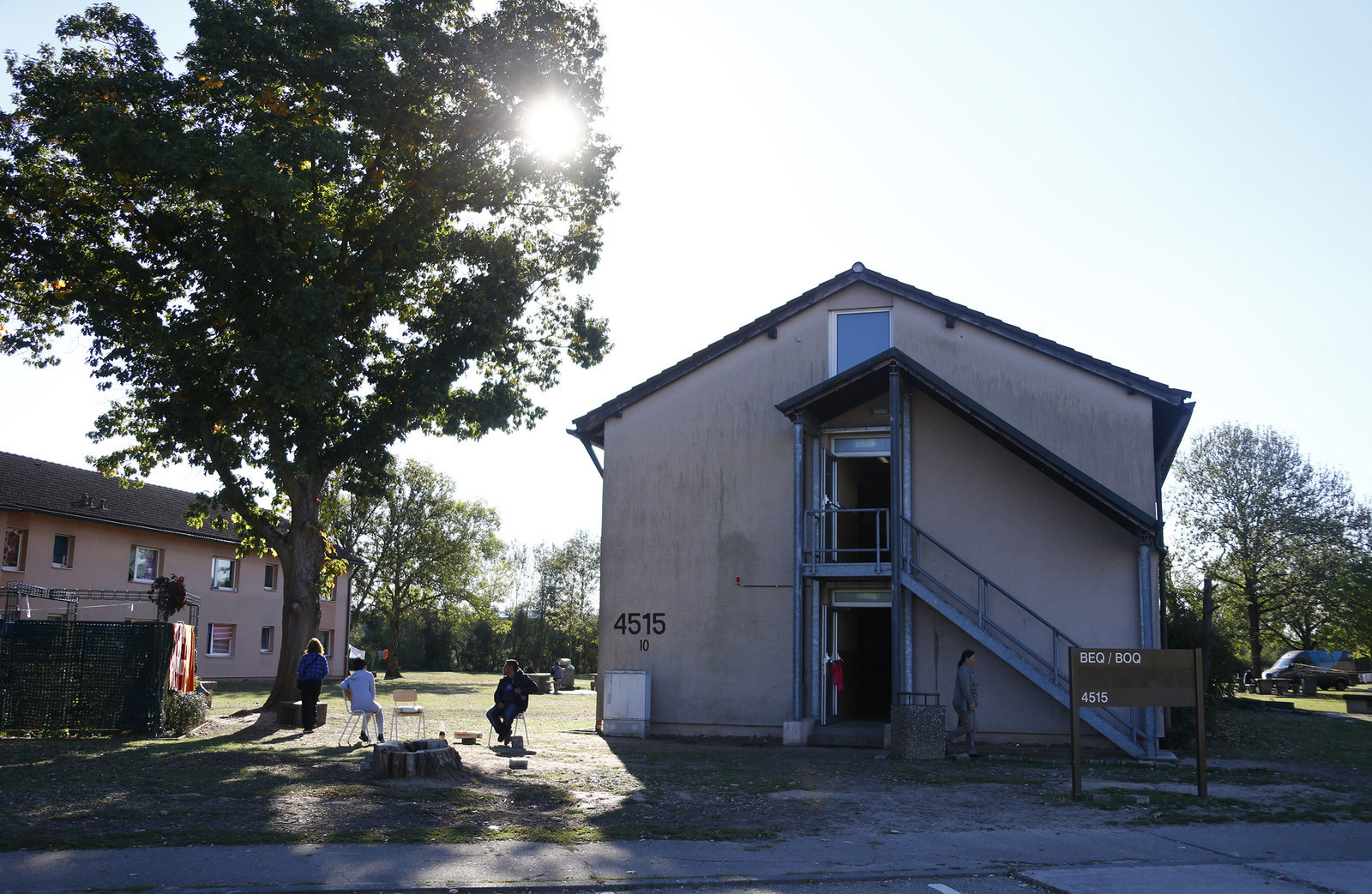
This is not how it’s supposed to work.
Germany has protections for women who are abused by their partners, and by law, asylum-seekers are entitled to use those protections just as much as any German citizen. There is a national hotline that women in emergencies can call and get help, with translators for several languages, including Arabic. Germany has a network of free shelters for women fleeing violence in their own homes.
All of this is true in principle. None of it was true for F.
No one in the camp administration told her about the hotline. No one told her about the women's shelters. No one offered to do anything except hide her in a room and hope for the best.
F and I first spoke on a Tuesday. I called two women's protection organizations in Heidelberg, but no one answered. So I tried the International Center for Women and Families in Heidelberg. I was told that refugee women aren’t eligible for the shelters; I said I happened to know this wasn’t true. Then I was told there’d be no access to shelters unless F filed a written complaint to the police.
F tried to file that complaint on Wednesday morning, but the police, whether out of misunderstanding or indifference, didn’t take her complaint. (The Heidelberg police referred media queries about all matters in Patrick Henry Village to the local government; the local government did not reply to multiple emails.)
So I called Women Help Women, a Heidelberg-based organization with several shelters in its network. The receptionist said no one in the office knew about refugee access to shelters. I should call back the next day, in the afternoon.
I did. I was asked to set up an appointment for F; the soonest would be a week later.
I insisted that would be too late, and I got a direct number for a shelter. The shelter volunteer told me they weren’t sure how to handle refugee cases, because the financing is complicated, and it wasn’t clear whether they could give her a room. Could I just call back next week?
With local resources a bust, in the early evening on Thursday, I called the national emergency hotline for abused women, where I spoke with a sympathetic woman who said she, too, didn’t know exactly what to do or advise. “There’s a problem with the shelter financing shelters [for refugees] right now,” she said. “It’s all unclear. It’s a little chaotic right now because there are so many of them.”
She sounded genuinely sad that she couldn’t help. And she suggested I call back, on Monday morning.
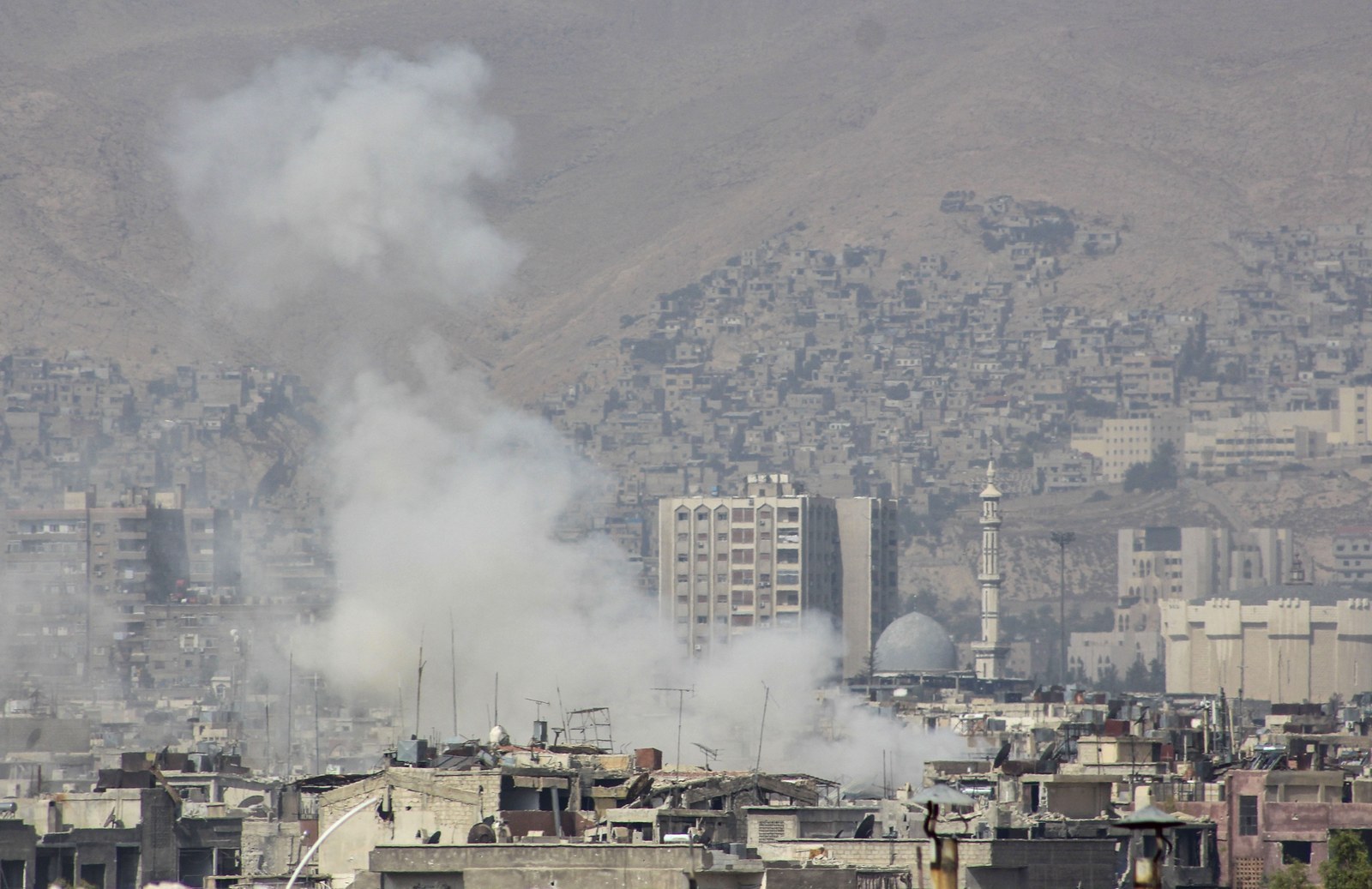
By this point, F had been placed in a secret, separate room in the camp, and we were all hoping she’d be transferred on Friday: Experts on domestic abuse situations know that the most dangerous moment in an abusive relationship is the time a woman tries to leave her abuser. But the bureaucracy brought on by F’s refugee status overwhelmed any sense of emergency at every step — with the police, with the security and administrative personnel at Patrick Henry Village, and with the women’s advocacy and safety organizations I talked to outside the camp.
A big hitch, clearly, was cash: Rooms in a women’s shelter are offered free of charge, and in principle they’re available to anyone who needs them, regardless of their immigration status. In practice, they’re subsidized with state and municipal funds. In asylum-seekers' cases, there may be additional funding available, but the process is so cumbersome that some shelters simply don't deal with women refugees.
"In practice, some women's shelters report that the financial process for asylum applicants proves so complicated that not all women's shelters will accept asylum seekers who are experiencing domestic violence," Verena Herb, a spokesperson for Germany's Ministry of Family Affairs, Senior Citizens, Women and Youth, wrote to BuzzFeed News in an email.
"There is no real security for asylum-seeking women."
This problem is not just about Patrick Henry Village or about European Homecare, the for-profit company contracted by the local government to run the camp, and it’s not just about refugees from Syria and Iraq. Domestic violence exists in every culture, in every part of the world — and women seeking refuge from many places have been facing these hurdles in Germany a decade or more.
“From experience, we know that there is no real security for asylum-seeking women [in Germany], because whenever they are attacked, either physically or sexually harassed, nobody knows what to do. There’s no clear policy,” said Betty Ngari, who co-founded Women in Exile, a Berlin-based group that advocates for better protections and integration of women refugees in Germany.
The group has been pushing, along with refugee advocacy organization ProAsyl, for better laws and better standards for protecting women in these camps. But there’s still no national standard — or even any clear law — on the issue in Germany today.
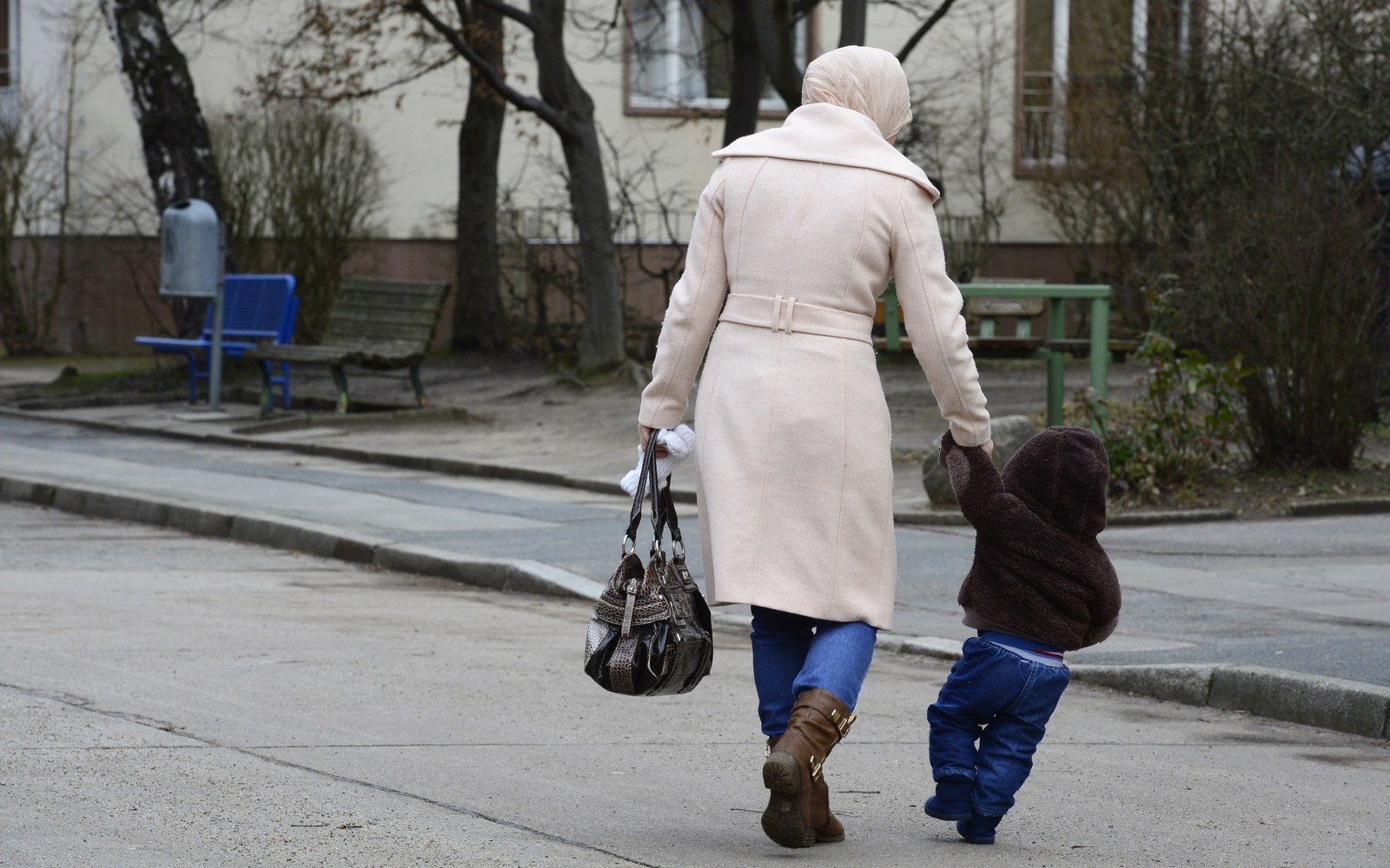
In the end the staff at Patrick Henry Village transferred F on Friday morning, with both of her kids, to a different camp. (Attar, the translator, says F’s husband has been calm since she left, and she does not feel threatened.)
The same day F was transferred, two officials at Patrick Henry Village gave me a tour of the grounds. Lt. Col. Ralf Scheffel and Alexander Billmaier, a press officer with the regional government that ultimately oversees the camp, told me there aren't any problems with gender violence at the camp. They described tensions between Albanians and Croats, and fights between men who drink, and “real problems” between Indians and Pakistanis.
“Against women,” Billmaier said, “we haven’t had any cases [of violence].”
I told him I had heard of two in just three days of reporting. Both men seemed confused.
"Sometimes, there’s cases from the journey, or from violence they saw before they left [their homes],” Scheffel said. Those women could go to the office hours held by different organizations, mostly churches, to help refugees with their various questions. Bonus: The office hours were usually run by women.
“Do you have a women’s protection officer? Or a gender adviser?” I asked, using jargon common in the humanitarian world.
“I’ve never heard of this thing,” Billmaier said.
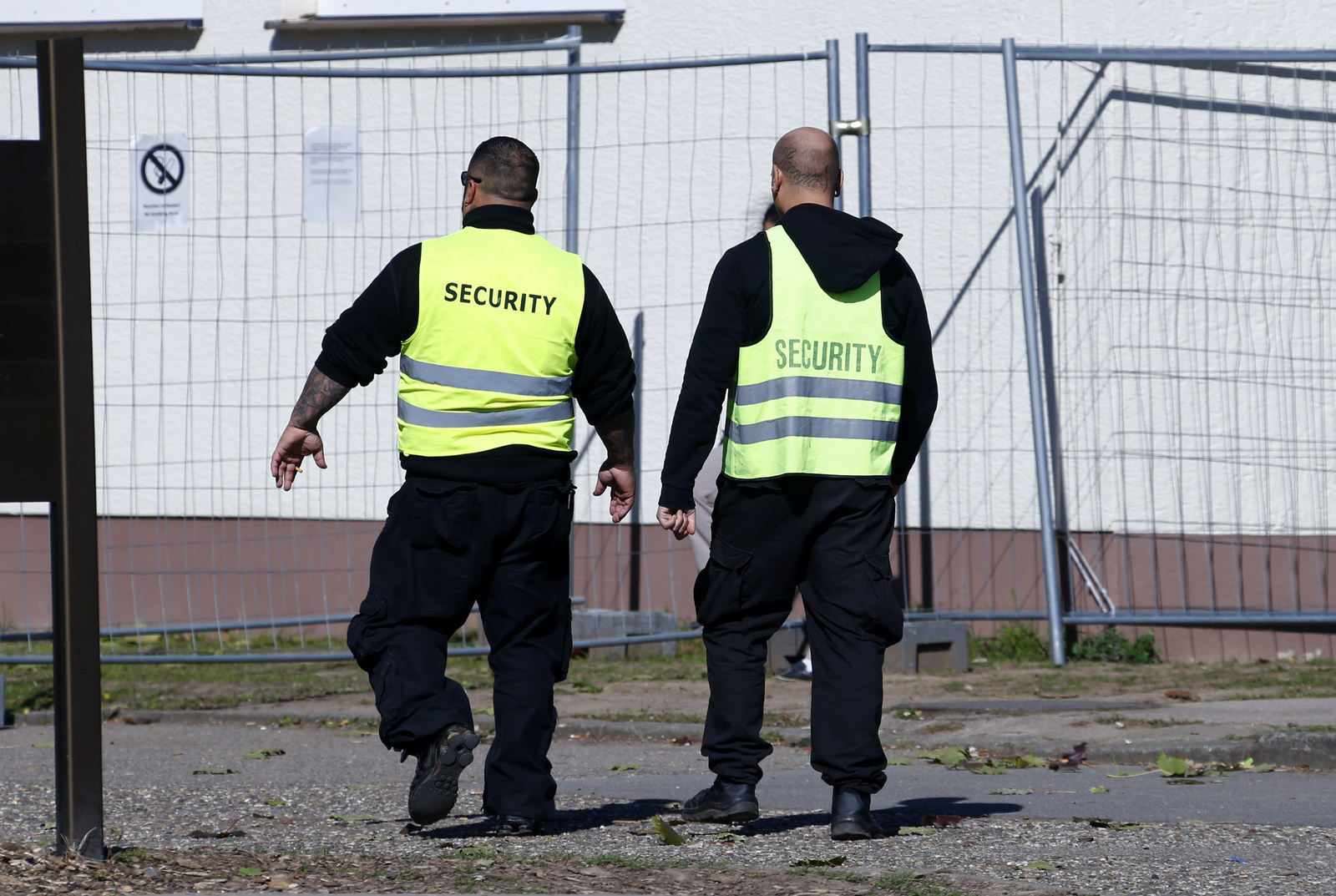
Over nearly two weeks, I sent several emails and made several phone calls to the press office of the state government of Baden-Württemburg, which oversees Patrick Henry Village, inquiring about sexual or gender-based violence cases in the camp and the government’s procedures for dealing with the problem. I never received a reply.
Patrick Henry Village, like many refugee centers in Germany, is run by a private contractor. European Homecare is a for-profit company based in Essen, Germany, that runs more than 100 care centers, according to spokesman Klaus Kocks. In a lengthy email exchange about European Homecare's policies and procedures regarding gender violence, Kocks never specified what European Homecare’s policies and procedures are. Instead, he said that essentially it's the government's problem.
"We are service providers, not decision-takers," Kocks wrote in an email. "The local authorities … are the ones responsable [sic]. Despite of this we see the relevance even for a service provider which is why we started the discussion on the human rights situation earlier on and on gender issues right now."
Kocks did not respond to follow-up requests seeking to confirm whether the discussion began after my emails and to detail the focus of those discussions.
When pushed about his company's policy on handling gender-based violence, he wrote: “Postscritum [sic]: All reports are to be documentated [sic] and/ or passed to the present representative of the responsible authority and the police. Standard procedure.”
"There's nowhere for women to go."
Keeping women in camps safe isn’t just about the violence they might face from their partners. It’s also about preventing opportunities for assault or exploitation. Common best practices in these situations are to make sure that bedrooms and bathrooms are gender-segregated and doors have locks.
But the temporary accommodation in Patrick Henry Village — the place you sleep when you first arrive — is gender-mixed. A hundred people are stacked on cots no wider than a hospital stretcher, scattered across the floor of what used to be a casino when the American soldiers lived here. Toilets are gender-mixed, too.
Syrian women in the camp say it was worse in “the kindergarten,” where soldiers’ kids went to elementary school. There, seeing men in the women’s bathrooms was common. Several women told me they were too uncomfortable to shower while staying there; they waited until they were moved to permanent rooms, in the buildings where soldiers used to live.
Village officials on my tour described the camp's permanent housing as “gender-segregated,” but that depends on the makeup of the family. Each room in permanent housing holds five people — family or not — and two rooms share a bathroom. Attar and her sister stayed with another family of three, including a 17-year-old boy; another boy slept next door, and people Attar didn't know moved in and out of the room next door during the day. Anyone in that room shared Attar's toilet and shower.
These issues aren’t unique to a single camp, or a single province. A coalition of nonprofits and women’s leaders sent a letter to the Hesse state parliament in August, alleging that it had reports from refugee women who had suffered violence and harassment in refugee camps in Giessen, a university town in the province, and demanding separate and secure bathrooms for women.
“It must be noted that this is not a matter of a few individual cases,” the letter said. “It cannot and should not be that the most vulnerable of refugees — women and children — are the greatest victims of a generally problematic health and welfare situation [in the camps].”
European Homecare runs some parts of the camps in question, according to Brigitte Ott, director of the state chapter of ProFamilia, a reproductive health organization and a signatory to the letter. But Ott said in an email that “structural problems” were a greater concern to the signatories than “who is operating the camps” and said the regional government has promised “concrete actions,” including better follow-up.
A Human Rights Watch researcher visiting refugee shelters in Dresden and Leipzig, on the other side of the country from Heidelberg, found harassment of women who live in mixed-gender hallways.
Germany’s laws on refugee accommodation are a national adaptation of an EU statute from 2003, according to the Ministry of the Interior. That statute was updated by the EU in 2013 to include its only references to gender protections: “Member States shall take appropriate measures to prevent assault and gender-based violence, including sexual assault and harassment, within … accommodation centres.”
Germany changed its national law to reflect this update this July, two years after the EU regulation was changed. A spokesman for the Ministry of the Interior said the new law can’t be implemented until the Council of Governors agrees on implementation procedures, because the day-to-day workings of refugee camps are up to state and local governments.
Two spokespeople for the Council of Governors did not reply to repeated requests on the matter.
Manuela Schwesig, the Minister of Family Affairs, has said that Germany needs better policies for ensuring separate and safe spaces for women, and she’s called specifically for locks on toilets and showers.
A statement emailed by her office to BuzzFeed News sounds as if it is about the very camp F lived in, though the minister was speaking generally: “There's nowhere for women to go in a gymnasium with 700 men.”

